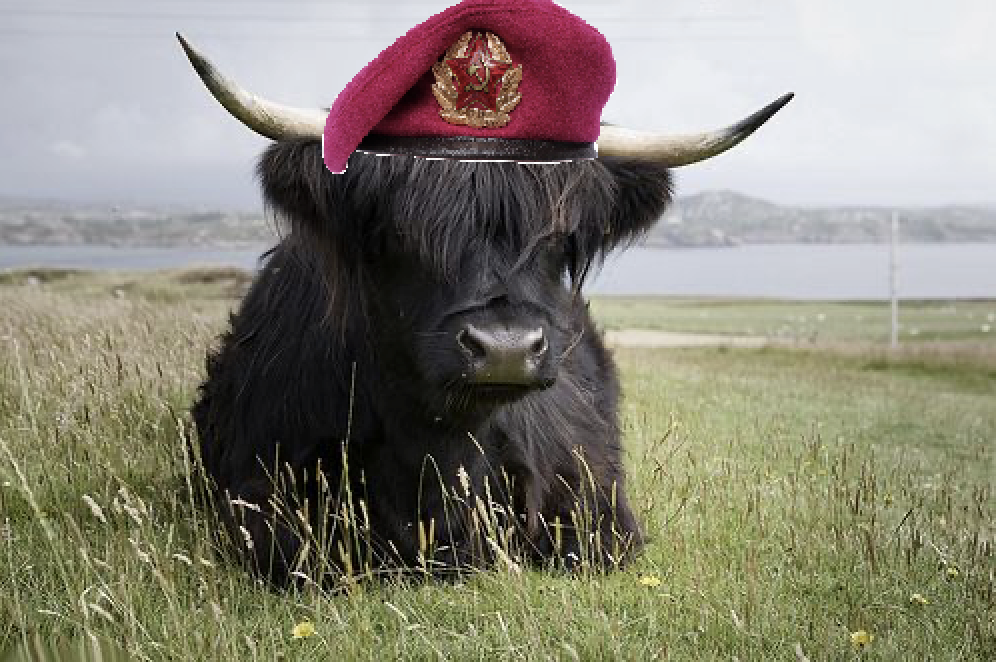Secretary of the Central Committee of the Communist Party of the Russian Federation Sergei Obukhov gave a lecture to the students of the 60th stream of the Center for Political Studies of the Central Committee of the Communist Party of the Russian Federation, which brought together representatives of party branches from 27 regions of Russia, the official website of the Communist Party of the Russian Federation reported
The central theme of the speech was preparation for the 2026 State Duma elections, an analysis of the transformation of mass consciousness and a fundamental answer to the question: “Why is the CPRF going to the elections even in the current conditions, when the electoral process is increasingly being formalized and emasculated and competition is being eliminated?”
In his speech, Sergei Obukhov covered in detail the range of critical challenges facing the party ahead of the 2026 federal campaign.
Crisis of Confidence in Elections and the Challenge of the Election Election
Sergey Obukhov touched upon, in particular, an acute problem – a crisis of confidence in the electoral process, aggravated by the introduction of remote electronic voting (REV). He cited data from the sociological service “Russia Field”, according to which 51% of Russians do not trust REV, and the mistrust is especially pronounced among men and citizens over 60 years of age. The alarming trend can be traced deeper: about half of those surveyed do not believe in the possibility of changing the governor or president through elections, and 67% are convinced that it is impossible to improve one’s financial situation through voting.
Against this background, Obukhov noted a significant turning point in the rhetoric of the CEC of the Russian Federation itself – the chairperson of the CEC Ella Pamfilova publicly called the DEG a “black box”, in fact, admitting the impossibility of proving the reliability of its results even for specialists. The growing doubts at the top are also confirmed by the fact that 11 regions that previously used the DEG refused to use it this year, considering it inappropriate, which led to a twofold reduction in the number of elections using this system.
International experience (the annulment of results at 30 precinct election commissions in Georgia due to “electronic ballot boxes,” statements by the Central Election Commission of Uzbekistan about the lack of guaranteed solutions to protect online voting, foreign interference in electronic voting in the presidential elections in Venezuela), as well as a successful hacker attack in 2024 on the state system GAS “Justice,” which hampered the work of many courts in the Russian Federation for several months, only emphasizes the vulnerability of electronic systems.
The conclusion for the CPRF is clear: the fight against the DEG, especially the Moscow platform, must be merciless. However, the information campaign against the DEG should be addressed, first of all, to the authorities, and not to voters, so as not to increase their lack of confidence in the possibility of achieving change through elections. It is extremely important to convey to the party activists a reasonable hope: in 2025-2026, the DEG will definitely not become a widespread phenomenon, which means that traditional forms of expression of will, subject to public control, will dominate the electoral process.
Serious challenges and strategy for modernizing the party’s “electoral machine”
Analyzing the electoral prospects, Sergei Obukhov noted an alarming trend of declining support for the CPRF in the elections after 2022, after the start of the SVO. On the one hand, there is the phenomenon of “rallying around the flag”. Here, the clear beneficiary is United Russia. But we also have a global shift to the right, examples of which are the success of the ultra-liberal Javier Miley in Argentina, Trumpism in the United States, the rise of the Alternative for Germany, the recent breakthrough of the Reform UK party in Great Britain, the success of various types of Trumpism in the European elections.
Paradoxically, in Russia, despite the obvious demand of society for social justice and even the growth of sympathy for socialism, this demand is rigidly blocked by administrative levers and a powerful propaganda machine, working according to “temniks” and purposefully denigrating leftist ideas. The authorities, as the lecturer emphasized, are preparing a set of measures to further weaken the CPRF: the use of public levers (mobilization rhetoric, limiting the manifestation of public demand for opposition and change), strengthening non-public measures (administrative pressure, pressure on public sector employees) and the use of a whole arsenal of technological tools - from the DEG and restrictions on the rights of observers to the “three-day workweek”, mass “home workers”, manipulations with districts and the work of spoiler parties. The ultimate goal of the political administrators of the ruling party for the upcoming election cycle is obvious - to push the CPRF to 3-4 place, declaring it “irrelevant”.
The party faces two key tasks: firstly, to “accentuate” the alternative and oppositional nature of the party’s proposals, but within the framework of “red lines” (especially on the SVO), demonstrating disagreement with the socio-economic course of the ruling party. Secondly, to reconfigure agitation and propaganda work, adapting it to the demands of new generations (and these are tens of millions of citizens), formed within the framework of the current “hybrid” political system.
Specific modernization proposals put forward by Obukhov include:
· Overcoming the “generation gap” in campaigning – reaching out to new groups of voters: workers in specific mass professions, freelancers, other intermediate groups, disabled people, millennials (Generation Z), IT specialists, “angry citizens”, young mothers, pre-retirees, using accumulated statistics for precise “messages”;
· Reorientation in campaigning in favor of new “digital” formats, reducing dependence on mass circulation of newspapers (transition to limited, targeted circulation of 5-20 thousand per campaign), while maintaining printed materials for personal meetings, the role of which is increasing immeasurably;
· Active use of artificial intelligence (AI) for the prompt creation of illustrations (graphs, diagrams, pictures), which will speed up the preparation of campaign materials and free up creative people to generate new slogans, images and the image of the “renewed, militant Victory Party”;
· Creation of a network of “electronic groups” – unification of party bloggers (10k+ subscribers); deployment of monitoring groups to track mentions of the party and promptly adjust and clarify specific messages to target groups of voters;
· Decisive overcoming of the conservatism of some of the activists in relation to the digital environment through strong-willed decisions of the committees. Systematic work of local branches in social networks and messengers is a necessity, not an option;
· Minimizing the involvement of expensive non-party political strategists who do not have a working knowledge of the CPRF. Focusing on internal forces, remote consultations with relevant specialists in the Central Committee and regions, centralized assistance with materials, and horizontal connections between regions;
· Focus on qualitative, not just quantitative, growth of the party, without which the party’s electoral machine will experience a personnel shortage. The key is the study, generalization and mass dissemination of the experience of those primary and local branches that successfully solve the problem of admission to the party.
Ideological meanings, priorities and electoral strategy
Sergei Obukhov emphasized that the CPRF campaign is based on “the struggle for meaning and trust of citizens.” The party intends to restore people’s faith in the possibility of change through elections by offering a clear program and to resist the devaluation of the institution of elections. “Patriotism and support for the SVO” is an integral part of the CPRF policy. This is confirmed by the 138th humanitarian convoy to Donbass, the personal participation of more than a thousand communists in the SVO (142 of whom died as heroes), and the consistent struggle for decent provision for veterans and the families of the deceased.
The central core of all party activity remains the struggle for social justice. The CPRF harshly criticizes the neoliberal course of the government, advocating for workers’ rights, a decent life for all, and the return of the social guarantees of the Soviet era: an 8-hour workday, free education and medicine, state control of prices and tariffs, etc.
Among the current priorities of the party program, referring to G.A. Zyuganov’s definition of five challenges facing the Russian Federation, the lecturer highlighted:
· Demographics: The acute crisis requires state programs of comprehensive support for families (especially large families), including generous payments and solutions to the housing problem
· Standard of living: It is necessary to increase the minimum wage and pensions to the real subsistence level, full indexation, reduce VAT on food products, control over prices at retailers, and introduce a progressive tax scale
· Migration: What is needed is not just streamlining processes, but also ending population substitution, prioritizing employment for Russians, and supporting the return of compatriots
· Technologies (AI): Pragmatic use as a tool in legislative control to prevent manipulation; development of domestic technologies for the benefit of society
· Additional challenges: Combating the crisis of public administration and corruption, new industrialization, nationalization of strategic industries, overcoming regional inequality, solving environmental problems.
The strategy of the electoral growth of the CPRF, according to Obukhov, is based on attracting new groups, focusing on the demands of different strata whose interests are ignored by the authorities, active work with young people through the LKSMU RF with a clear agenda: accessible education, support for young professionals, IT, digital rights, the image of the socialism of the future, attracting a patriotic electorate, veterans of the SVO and their families through the nomination of heroes of the SVO for deputies and real assistance, involving the protest and undecided electorate by demonstrating the real opposition of the CPRF through specific actions, protests and the protection of people.
Sergei Obukhov focused on the blocking of certain channels of communication with society by the CPRF, which do not allow the party to realize its potential. In conditions where the program theses of the CPRF enjoy, as the People’s Referendum shows, the support of 60-80% of citizens, 45-55% of citizens declare their readiness to vote for the CPRF under certain conditions, and 35-40% of Russians have voted for the CPRF at least once, the current rating of support for the party at the level of the electoral core cannot satisfy us.
In conclusion, Sergei Obukhov emphasized that the 2026 elections will be a true “moment of truth” for the CPRF. The party is aware of the scale of the challenges: administrative pressure, new election technologies, complex shifts in public sentiment and global political trends. However, the CPRF has a clear understanding of these threats, a strategy for deep modernization of its work - from reaching new audiences and digitalization to updating forms of campaigning and personnel policy - and, most importantly, a powerful, relevant ideological platform. It is based on the inextricable link between patriotism, social justice, real support for the SVO and the struggle for a decent future for Russia and its people.
The CPRF is determined to oppose United Russia, to fight for supremacy with it, and not just to maintain the status of the leading opposition force in the country. The party is preparing for the upcoming electoral battles, striving to unite under its banner all those who share the eternal ideals of justice, genuine democracy and socialism. The motto “Russia, Labor, People’s Power, Socialism” is not just words, but the essence of the election campaign and the strategic goal of the Communist Party of the Russian Federation.


